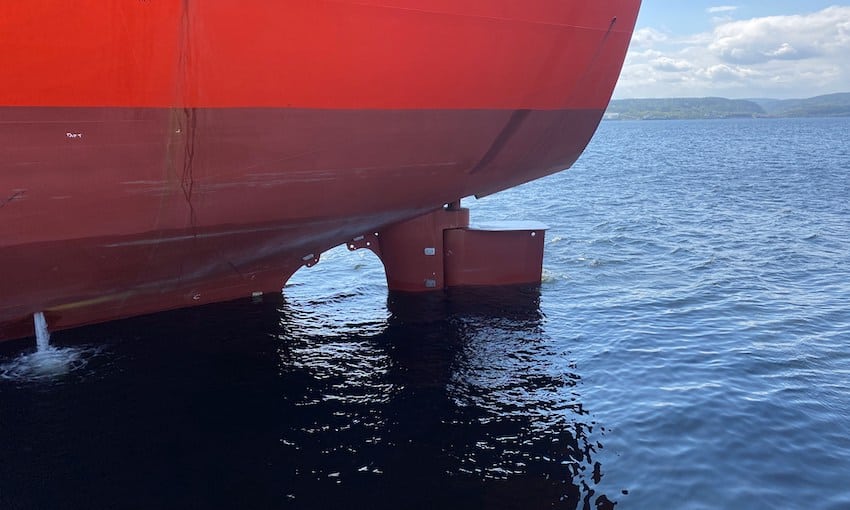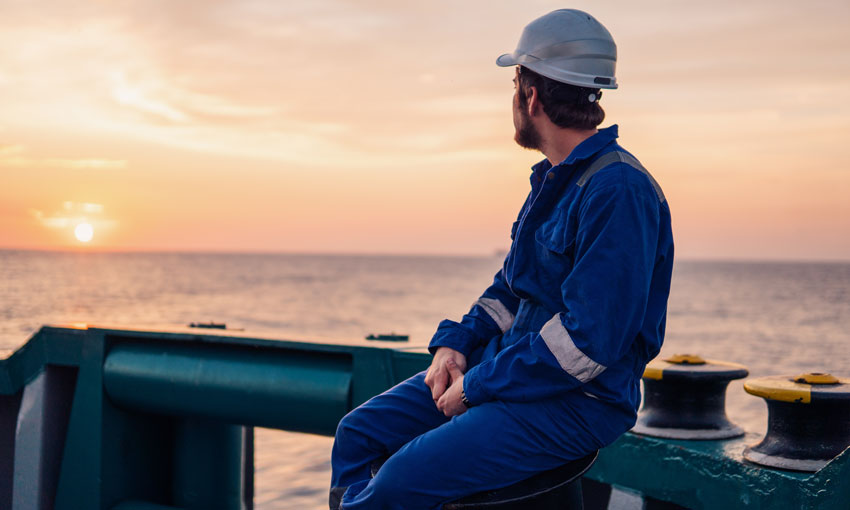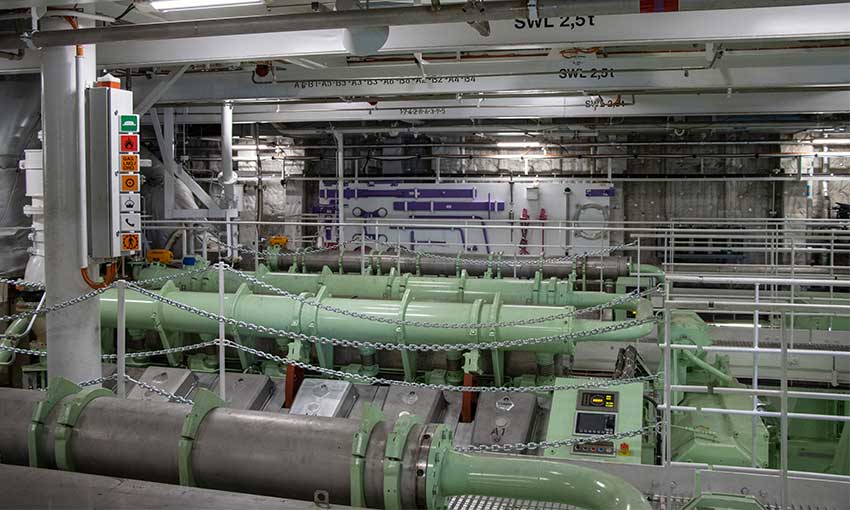MOST energy efficiency measures prescribed to the shipping industry can also reduce underwater noise, research from the University of Southampton has found.
The new study highlighted the impact of energy efficiency measures on underwater radiated noise emissions and the benefits for shipowners and the environment.
The report, The impact of shipping’s energy efficiency measures on reduction of underwater radiated noise, and opportunities for co-benefit, was commissioned by the International Chamber of Shipping.
It identified an opportunity to leverage synergies and reverse the upward trends in underwater radiated noise.
ICS describes underwater radiated noise as the unintentional noise generated by vessels as they move through the water.
ICS noted the International Maritime Organization issued guidelines in 2014 to address the impact underwater noise has on marine life. Those guidelines were revised following the Marine Environment Protection Committee (MEPC 80) in July this year.
The new study set out to reviews the IMO’s initiatives and strategies for decarbonising the shipping industry and identify the measures and tools available that can contribute to expediting the transition.
Stephen Turnock, professor of maritime fluid dynamics and part of the University of Southampton’s Marine and Maritime Institute, said the report shows that shipping has an opportunity to embrace energy efficiency technologies that will both help ensure it meets its essential greenhouse gas emission reduction targets as well as reducing underwater radiated noise.
“Overall, the report should help in choices being made for future ship design and operation that reduce the overall environmental impact of shipping.”
ICS technical director Chris Waddington said the organisation welcomed the report.
“It recognises that most energy efficiency measures will also reduce underwater radiated noise, and therefore presents a win-win situation for shipowners,” he said.
“For safe and cost-effective operation, it is important that shipowners retain discretion on the selection of measures.
“But for example, modest speed reduction, such as we have seen as a consequence of the EEXI regulation can improve both efficiency and reduce underwater radiated noise for vessels fitted with fixed pitch propellers.”
Mr Waddington said wind-assisted propulsion and air lubrication improve efficiency and can each provide around 10 dB underwater radiated noise reduction.
“Considering the aging fleet of vessels, the forthcoming, more stringent Carbon Intensity Indicator requirements, and the likely high cost of the alternative fuels, the study anticipates a growing trend of vessels implementing energy-efficiency measures to align with the IMO’s revised GHG strategy targets.
“There is no one size fits all solution for the challenge we have ahead but we recognise that by improving energy efficiency, underwater radiated noise can also be reduced and our oceans can be healthier.”
ICS said it encourages industry adoption of the revised non-mandatory guidelines on the reduction of underwater radiated noise.





